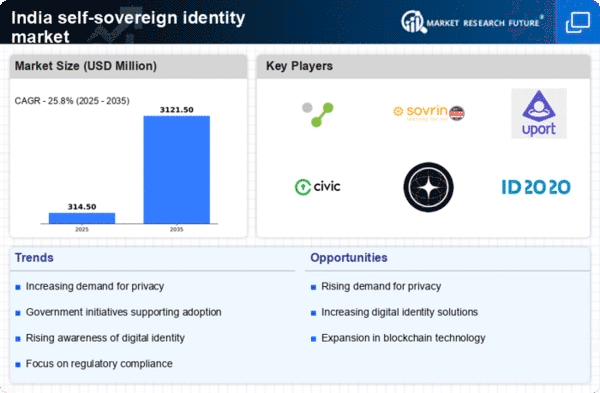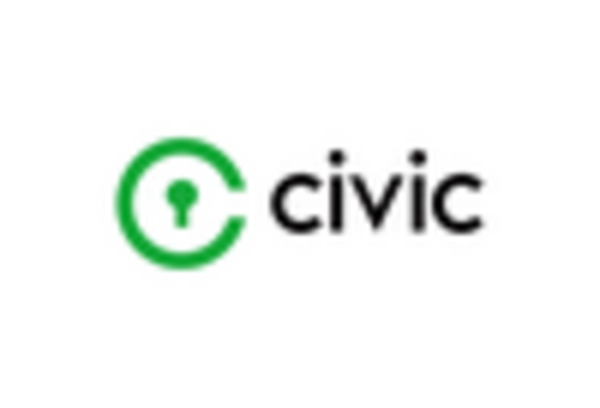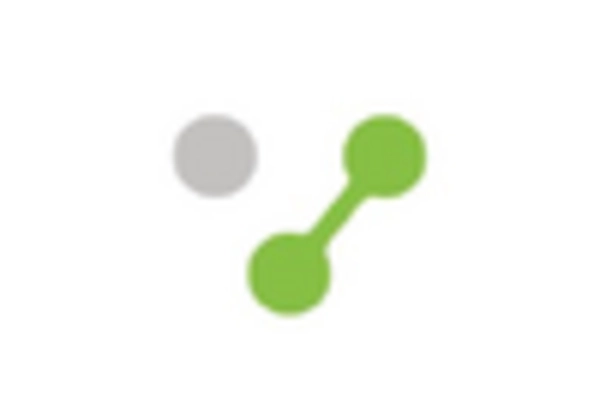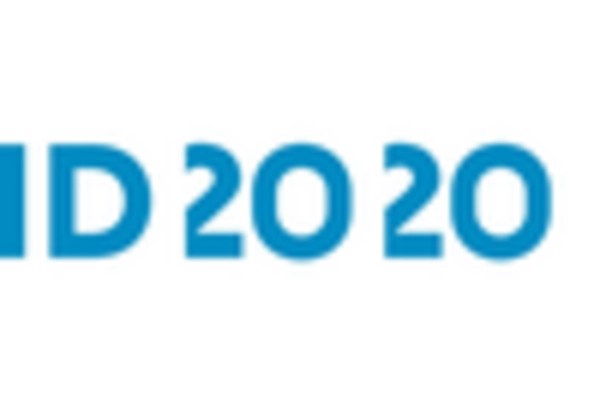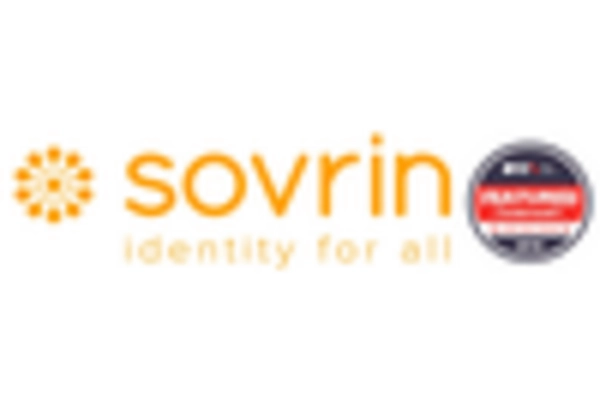Growing Digital Economy
The rapid expansion of the digital economy in India is a crucial driver for the self sovereign-identity market. As more businesses and services transition online, the need for secure and efficient identity verification becomes paramount. In 2025, India's digital economy is projected to reach $1 trillion, highlighting the increasing reliance on digital platforms. This growth necessitates robust identity solutions that empower individuals to control their personal data. The self sovereign-identity market offers a decentralized approach, allowing users to manage their identities without intermediaries. This shift not only enhances user privacy but also fosters trust in digital transactions, which is essential for the continued growth of the digital economy.
Rising Consumer Awareness
As consumers become more informed about data privacy and security, there is a growing demand for self sovereign-identity solutions. Individuals are increasingly recognizing the importance of controlling their personal information and the risks associated with traditional identity management systems. This shift in consumer mindset is driving the self sovereign-identity market, as users seek solutions that empower them to manage their identities securely. Surveys indicate that over 70% of consumers in India express concerns about data privacy, suggesting a strong market potential for self sovereign-identity solutions. This heightened awareness is likely to encourage businesses to adopt these technologies to meet consumer expectations.
Increased Cybersecurity Concerns
With the rise in cyber threats and data breaches, the demand for enhanced security measures in identity management is intensifying. The self sovereign-identity market addresses these concerns by providing individuals with greater control over their personal information. In India, cybercrime incidents have surged, leading to a heightened awareness of the need for secure identity solutions. The self sovereign-identity framework minimizes the risk of identity theft by allowing users to share only the necessary information for verification. This approach not only protects personal data but also builds confidence among users, thereby driving the adoption of self sovereign-identity solutions across various sectors.
Technological Innovations in Blockchain
Technological advancements, particularly in blockchain technology, are propelling the self sovereign-identity market forward. Blockchain offers a decentralized and secure method for identity verification, which aligns with the principles of self sovereign-identity. In India, the adoption of blockchain is gaining momentum, with various sectors exploring its potential for enhancing security and transparency. By 2025, it is anticipated that blockchain-based identity solutions will become more prevalent, providing users with a reliable means to manage their identities. This technological innovation not only streamlines the verification process but also fosters trust among users, thereby driving the growth of the self sovereign-identity market.
Government Initiatives for Digital Identity
The Indian government has been actively promoting digital identity initiatives, which significantly impact the self sovereign-identity market. Programs such as Aadhaar have laid the groundwork for digital identity verification, encouraging the development of more advanced solutions. In 2025, the government aims to enhance its digital infrastructure, which is expected to facilitate the integration of self sovereign-identity systems. By supporting policies that promote data privacy and user control, the government is likely to create a favorable environment for the self sovereign-identity market to flourish. This alignment with governmental objectives can lead to increased investment and innovation in identity management technologies.


